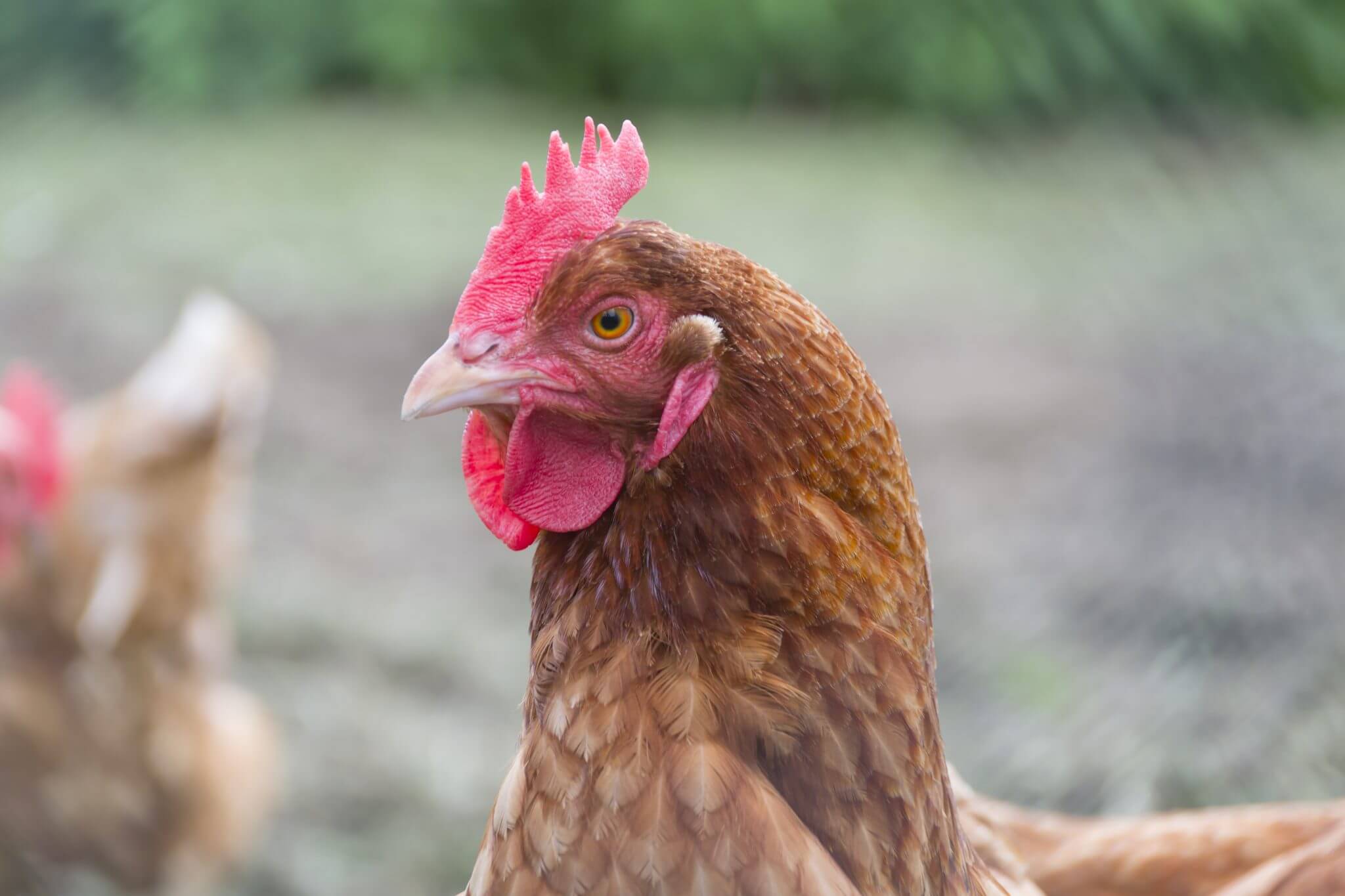Chickens and the City: The Pros & Cons of Raising Backyard Hens
March 9, 2018 By
Sarah White 3 Comments

The Backyard Chicken Diaries: #1 – The Pros & Cons
In 2015, my partner Kyle and I bought our first home; a sweet little bungalow in an old neighbourhood in Toronto. While our tiny home in the big city has brought us a centipede infestation, old appliances (babe … if you’re reading this it’s really time for a new dishwasher) and many unexpected expenses, it’s also allowed us to realize our dream of keeping a small backyard ‘farm’. After 3 years of trial and error we now consider ourselves to be fairly competent urban farmers. Throughout the summer we grow raspberries, blackberries, tomatoes, medicinal herbs, kale and brussel sprouts, and have even adopted three cheeky chickens named Karen, Linda and Wenda. As a proud chicken mom, I frequently post pictures of the girls as they cause mischief in the backyard resulting in an outpouring of questions from patients and friends on how to raise chickens in the city.
Now that chicken ownership has become legal in a few boroughs of Toronto I figured it was time to answer everyone’s questions in a series of posts. While there’s a lot to love about raising chickens in your own backyard, there’s also quite a few things to consider before committing to backyard hens. Here are our pros and cons of keeping city chickens:
Pros:
- Better eggs: the glorious orange-yolked, fresh from the coop eggs. There truly is nothing more delicious than scrambled eggs made with eggs still warm from the backyard. They are tastier and fresher than any store or farm-bought eggs.
- Healthier food: I consider our eggs to be much healthier than anything from the supermarket since we know exactly what our birds are eating and how fresh they are. Store-bought eggs are processed with bleach and can be sitting on the shelves for upwards of 3 weeks before they reach your breakfast plate. All chicken eggs are naturally covered with a protective antimicrobial layer called a bloom. By maintaining the bloom we can keep our eggs fresh on the counter for over 2 weeks with no need for refrigeration or chemical processing. We also feed our chickens organic food scraps from our kitchen and juicer knowing that the food our birds eat has a huge impact on egg & meat quality.
- Better for the environment: The shells, along with the chicken poop (and there’s LOTS of chicken poop – see cons) are tossed right into our garden. Chicken manure is rich in nitrogen and contains a large amount of potassium and phosphorus. The high nitrogen and balanced nutrients makes chicken poop the best fertilizer for your backyard garden.
- Low maintenance pet: Our birds entertain themselves, picking at grass, worms, bugs and even pecking at Kyle when he goes in the coop to feed them. They don’t need a ton of room to be happy and can be fed and watered once every 1 – 2 days. Our girls have a special outdoor run to ensure they’re getting enough sunlight and space but in the winter we simply string up a head of cabbage and they’re content to play vegetable tether ball inside their coop until the weather gets warmer.
- Ethical food: Industrial egg-laying hens are kept in small cages and are bred to produce more eggs – laying over 300 eggs with a life span of 70 weeks. The high-intensity production forced on conventionally raised chickens affect their bones, mood and stress levels. In comparison, our backyard chickens will lay eggs at a natural and stress-free pace of 1 egg daily for around four years. While most chickens live short sad lives, we feel great knowing that we’ve rescued 3 birds from this fate and given them a happy and loving home in our backyard.
After reading all that you may be jumping at the chance to raise your own chickens, but remember … nothing good comes easy:
Cons:
- Chicken poop: Chicken poop is the most disguising, foul-smelling stuff on this planet, and there will be LOTS of it. These savages poop all day, every day, and often in their own food and water dishes. Be prepared to set aside at least 1 hour weekly to scoop poop and clean your coop. Backyard chickens may not be a great option if you’re already feeling pushed to the limit with work and family commitments.
- Clucking: Chickens make a lot of noise! Even without a rooster crowing every morning (and you don’t need a rooster to keep hens, they will lay eggs regardless – a common misconception), your girls will still make a lot of noise in your backyard. If you have uptight neighbours or if you like to sleep in, then backyard chickens are not for you.
- Responsibility: Before you decide to take on backyard hens please consider that you will be responsible for another life. Chickens need to be fed and watered, which can be difficult when it comes to planning vacations and juggling heavy work schedules. We’re lucky that we have amazing neighbours that don’t mind feeding the girls while we’re away. We also have parents who will drive down from Brampton or Oakville to feed their chicken grandchildren while we’re away on vacations.
- Shenanigans: Our chickens are very very naughty. There have been numerous occasions where I’ve gotten home from work to find the chickens roaming around our backyard after escaping the confines of their coop. They also love pecking at visitors and would eat an entire garden’s worth of baby tomatoes if given the chance. That being said we love our wayward hens, and wouldn’t have them any other way.

Pictured: Linda during the great chicken escape of 2017

My chicken family: Dr. Sarah, Karen & the chicken daddy



